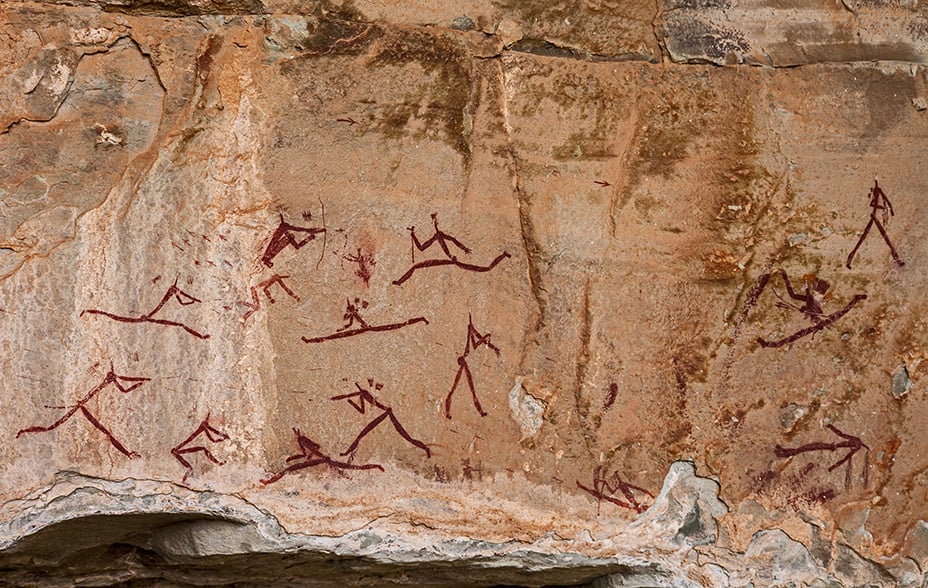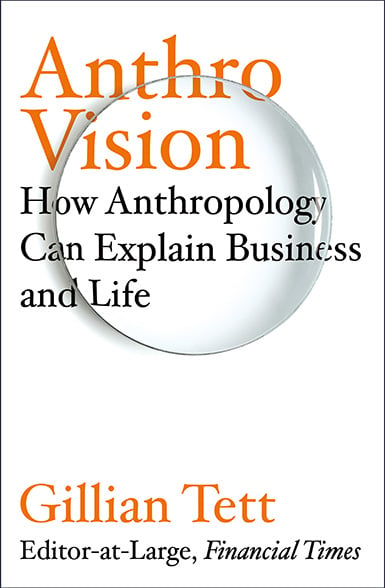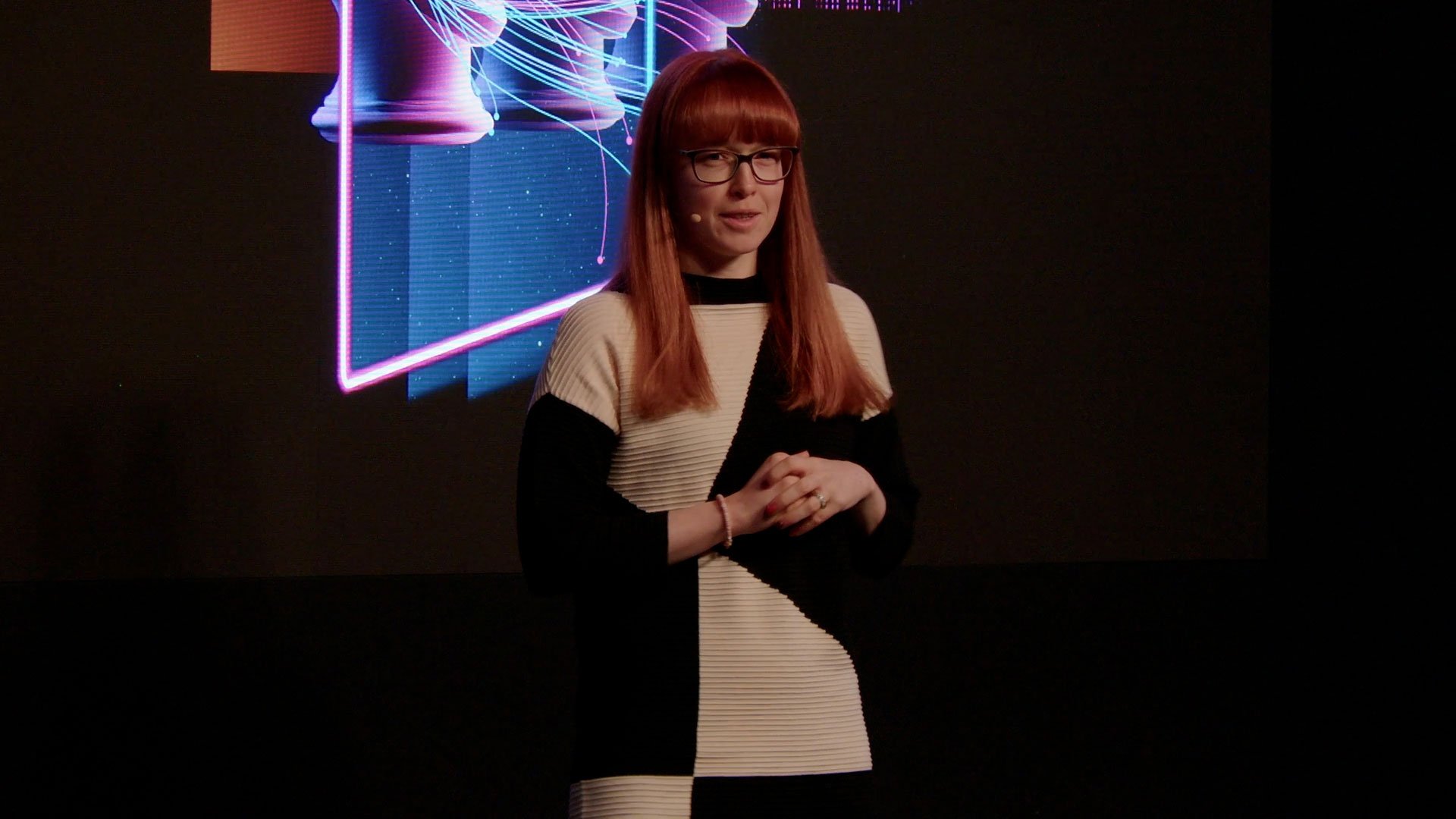Key points
Companies that hire anthropologists to get inside customers' minds would do better getting them to look at their own corporate behaviour, Gillian Tett tells Pádraig Belton.

In 2005, Financial Times journalist Gillian Tett went to an investment banking conference and had an epiphany. It struck her that the bankers attending were just as tribal in their behaviour as the inhabitants of Central Asia’s Hindu Kush.
Tett, author of Anthro Vision: How Anthropology Can Explain Business and Life, had studied human behavioural patterns and cultural norms as part of a doctorate in anthropology. In her thesis, she suggested that the wedding rituals and other ceremonies of Tajik families living in the area’s high, remote valleys helped them “affirm a shared world view, and pull together a scattered tribe,” she explains.
At that conference, the bankers followed their own rituals consisting of PowerPoint presentations and golf outings. They spoke a language filled with Greek-lettered algorithms, as impenetrable to a layperson as ecclesiastical Latin.
These customs helped the bankers reinforce each other’s belief in the ‘perfect liquidity’ of financial markets, touting products that Tett describes as being “so complex no one could trade them, and others where no market values existed”.
This, she thought, was a tribe that had excluded outsiders from its considerations – especially, as it later turned out, the unfortunate ‘sub-prime’ borrowers with low wages and mounting debts.
Now Tett, who also went on to foretell the victory of Donald Trump by observing voter body language, is worried again. The leaders of ‘Big tech’, like the financiers of the 2000s, believe they have stumbled on innovations that, as well as being highly profitable, can only benefit humankind. But like the banking establishment of the 2000s, their aims and methods are couched in ‘tech-speak’ that excludes the rest of us from the conversation.
“They’re not necessarily lying to themselves,” says Tett, “[But] it’s exactly when people half-believe what they're saying that they're at their most dangerous.”
This is when anthropology’s “worm’s eye view” acts as a useful corrective. In a world drowning in noise, the discipline teaches us to focus on “the social silence”, Tett explains – the things people don’t say or their unstated assumptions.
Economists use masses of data and abstract theories to study how firms, people and the markets interact. Anthropology offers a corrective: analysis of how individuals think and behave in group cultures.
Technology companies aren’t blind to this. In fact, Facebook, Amazon, Uber and Google’s parent Alphabet employ anthropologists themselves – but Tett claims the firms have set the academics to the wrong task.
“[They] try to get inside customers’ minds, to see what’s driving them,” she says. Instead, the researchers should “flip the lens” and look at how tribal the tech CEOs are themselves.
By doing so, Tett suggests, the coming “techlash” needn’t be as damaging as the mid-2000’s financial crisis.
Tett wrote Anthro Vision during the Covid lockdowns, which she says presented rich behavioural material of their own. Covid-19 demonstrated you “can’t beat a pandemic with medical or even data science,” she explains.
“You need to understand people’s behaviour,” which is shaped by the cultural differences we draw from our surroundings. For example, messages from a scientific ‘elite’ have played poorly in some corners of the US and UK, Tett notes. Meanwhile lockdowns reinforced our silos, forcing us to spend more time with our tribes and removing accidental encounters with those who don't share our worldview.
Still, the problem with trying to study culture is that it “is everywhere and nowhere and trying to define it is a bit like trying to chase soap in the bath,” she says. But she acknowledges that the worm’s eye view has drawbacks of its own as there are risks in extrapolating from granular detail.
“If you’re walking through a dark wood with a compass, you need to look down for tree roots, but you’re not going to throw away your compass,” Tett says. By widening our vision, we can do a better job of embracing environmental, social and governance factors, she believes.
This might help pave the way to regulatory interventions that can temper capitalism’s excesses. It could also help more of us make sense of what’s happening in cryptocurrencies, where new trust-based dynamics are changing the rules.
“A fish can't see the water it swims in”, according to a Chinese proverb that Tett quotes.
“None of us can see the cultural assumptions that shape us, unless we periodically go and swim with other fish and look back at our own water.”
Her point is this: For all the tech-led disruption going on, there’s no reason to believe that the age-old ways of human behaviour have ceased to apply.


Anthro Vision: How Anthropology Can Explain Business and Life by Gillian Tett is published by Random House Business, £20.
14950 10007048
Pádraig Belton
Pádraig Belton writes on a range of topics for the BBC, while completing a doctorate in politics at the University of Oxford. He’s a volunteer driver for St John Ambulance.



